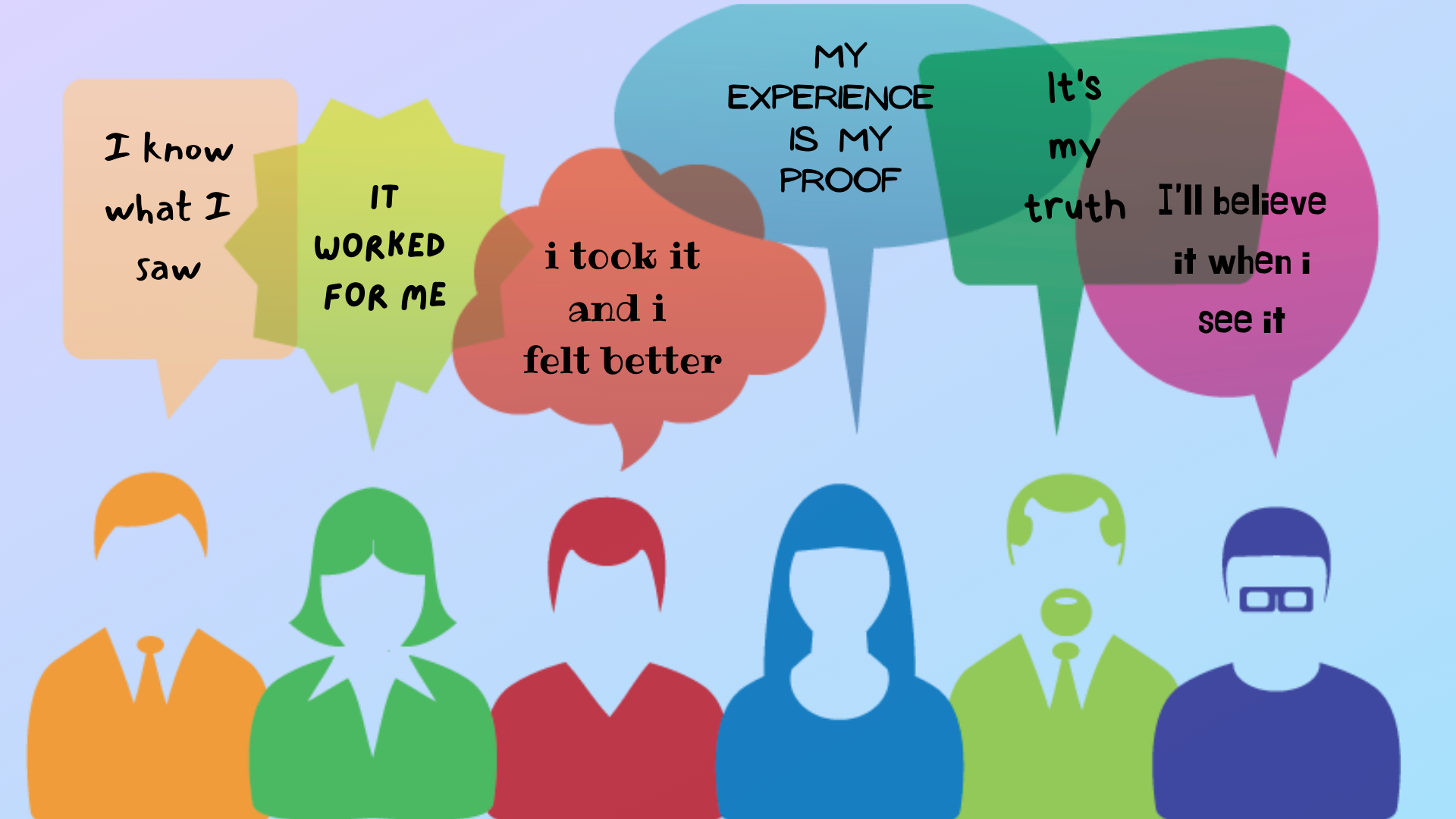Personal Experiences

Personal Experiences in AP English Language
Introduction
In AP English Language, personal experiences play a pivotal role in developing compelling and persuasive writing. Whether crafting a narrative essay, constructing an argument, or analyzing rhetorical strategies, drawing from individual encounters can enhance the depth and authenticity of your work. This guide explores the concept of personal experiences, their significance in AP English Language, and effective methods to incorporate them into your writing.
Defining Personal Experiences
Personal experiences are individual encounters or events that someone has gone through in their life, shaping their beliefs, values, and understanding of the world. These experiences provide a unique perspective that can be leveraged to create engaging and relatable content in various forms of writing.
Key Characteristics of Personal Experiences
- Subjectivity: Personal experiences are inherently subjective, offering a first-person perspective.
- Emotional Depth: They often evoke strong emotions, adding intensity and relatability to the narrative.
- Reflective Nature: Personal experiences encourage introspection and deeper analysis of events and their impacts.
- Narrative Potential: They provide rich material for storytelling, making them versatile for different writing styles.
Importance of Personal Experiences in AP English Language
Personal experiences are invaluable in AP English Language for several reasons:
- Authenticity: They lend authenticity and credibility to your writing, making your arguments and narratives more convincing.
- Engagement: Personal anecdotes and stories can captivate readers, maintaining their interest throughout the piece.
- Persuasion: Sharing personal insights can strengthen persuasive essays by providing relatable and tangible examples.
- Analysis: Reflecting on personal experiences allows for deeper analysis and understanding of broader themes and concepts.
Incorporating personal experiences effectively can elevate your writing, making it more impactful and memorable.
Types of Personal Experiences
Understanding the different types of personal experiences can help you choose the most appropriate form for your writing assignment.
Autobiography
Definition: An autobiography is a written account of one’s own life story, including personal experiences and reflections.
Features:
- Chronological Structure: Typically follows a chronological order, detailing significant life events.
- Personal Reflection: Includes insights and reflections on how experiences have shaped the author.
- Comprehensive Scope: Covers a wide range of experiences, providing a holistic view of the author’s life.
Example: The Autobiography of Benjamin Franklin by Benjamin Franklin.
Memoir
Definition: A memoir is a narrative focused on specific events from a person’s life, often highlighting significant moments or lessons learned.
Features:
- Selective Focus: Concentrates on particular themes, periods, or events rather than an entire life span.
- Emotional and Reflective: Emphasizes the emotional and psychological impacts of experiences.
- Literary Style: Often employs a more literary and creative writing style compared to autobiography.
Example: Educated by Tara Westover.
Coming-of-Age Story
Definition: A coming-of-age story is a genre of literature where the protagonist undergoes personal growth and transformation through various experiences.
Features:
- Protagonist’s Journey: Centers around the protagonist’s transition from youth to adulthood.
- Personal Development: Focuses on the internal and external challenges that contribute to the protagonist’s maturity.
- Universal Themes: Explores universal themes such as identity, self-discovery, and resilience.
Example: To Kill a Mockingbird by Harper Lee.
Incorporating Personal Experiences into Writing
Effectively integrating personal experiences into your writing can enhance its impact and resonance with readers. Here are some approaches for different types of essays:
Narrative Essays
Purpose: To tell a story from your own life, focusing on a particular event or series of events.
Tips:
- Choose a Significant Event: Select an experience that had a meaningful impact on you.
- Create a Vivid Setting: Use descriptive language to paint a clear picture of the scene.
- Focus on Emotions: Convey the emotions you felt during the experience to connect with readers.
- Include Dialogue: Incorporate conversations to add realism and depth to the narrative.
Argumentative Essays
Purpose: To persuade the reader of a particular point of view by using evidence and reasoning.
Tips:
- Use Personal Anecdotes as Evidence: Share personal stories that support your argument.
- Balance Personal and External Evidence: Combine personal experiences with research and data to strengthen your case.
- Maintain Objectivity: Ensure that personal anecdotes complement rather than overshadow logical arguments.
Rhetorical Analysis
Purpose: To analyze how an author uses rhetorical strategies to achieve their purpose.
Tips:
- Draw Parallels with Personal Experiences: Relate the author’s strategies to your own experiences for deeper understanding.
- Reflect on Emotional Appeals: Consider how personal emotions influence your perception of the text.
- Analyze Persuasion Techniques: Examine how your own experiences affect your interpretation of rhetorical devices.
Techniques for Effective Use of Personal Experiences
To maximize the effectiveness of personal experiences in your writing, consider employing the following techniques:
Show, Don’t Tell
Definition: Instead of simply stating facts or emotions, illustrate them through vivid descriptions and actions.
Example:
- Telling: I was nervous before the presentation.
- Showing: My hands trembled as I clutched the notes, and my heart raced against my chest.
Use of Vivid Details
Definition: Incorporate specific and sensory details to create a vivid image in the reader’s mind.
Example: Instead of saying, “The garden was beautiful,” describe the colors, scents, and sounds: “The garden burst with vibrant tulips of red and yellow, the air fragrant with blooming jasmine, and the gentle hum of bees busily pollinating each flower.”
Emotional Appeal
Definition: Connect with the reader’s emotions by sharing genuine feelings and experiences.
Example: Sharing a story of overcoming a personal challenge can evoke empathy and inspire readers.
Reflective Insight
Definition: Provide thoughtful analysis and reflection on how experiences have shaped your beliefs and values.
Example: After recounting a volunteer experience, reflect on how it influenced your perspective on community service and social responsibility.
Analyzing Personal Experiences in Literature
When studying literature, personal experiences can offer valuable insights into an author’s intentions and the broader themes of a work.
Author’s Purpose
Understanding Intentions: Personal experiences often inform an author’s purpose in writing, whether to persuade, inform, entertain, or express personal growth.
Example: Ernest Hemingway’s experiences as an ambulance driver in World War I influenced his themes of heroism and the futility of war in A Farewell to Arms.
Themes and Motifs
Exploring Universal Themes: Personal experiences can help identify and analyze recurring themes and motifs within a literary work.
Example: The theme of identity in The Catcher in the Rye is deeply connected to Holden Caulfield’s personal struggles and experiences.
Character Development
Insight into Characters: An author’s personal experiences can provide depth to character development, making characters more relatable and realistic.
Example: In To Kill a Mockingbird, Harper Lee’s experiences growing up in the South influenced the portrayal of Scout’s moral development and understanding of justice.
Related Terms
Autobiography: A written account of one’s own life story, including personal experiences and reflections.
Memoir: A narrative focused on specific events from a person’s life, often highlighting significant moments or lessons learned.
Coming-of-Age Story: A genre of literature where the protagonist undergoes personal growth and transformation through various experiences.
Anecdote: A short and interesting story about a real incident or person, often used to illustrate a point.
Reflection: A thoughtful consideration of one’s experiences and their impact on personal beliefs and values.
Narrative Voice: The perspective from which a story is told, which can be influenced by personal experiences.
Point of View: The angle from which a story is narrated, such as first-person or third-person, affecting how personal experiences are conveyed.
Theme: The central idea or underlying message in a literary work, often influenced by personal experiences.
Rhetorical Device: Techniques used by writers to persuade or engage readers, which can include personal anecdotes.
Empathy: The ability to understand and share the feelings of another, often evoked through personal storytelling.
Descriptive Language: Language that appeals to the senses, used to vividly portray personal experiences.
Character Arc: The transformation or inner journey of a character, often shaped by personal experiences.
Symbolism: The use of symbols to represent ideas or qualities, which can be tied to personal experiences.
Voice: The distinct style or perspective of the writer, influenced by their personal experiences.
Imagery: Descriptive language that creates vivid pictures in the reader’s mind, enhancing the portrayal of personal experiences.
Dialogue: Conversations between characters that can reveal personal experiences and relationships.
Conflict: Struggles faced by characters, often rooted in their personal experiences.
Resolution: The conclusion of a story where conflicts are resolved, influenced by the characters’ experiences.
Perspective: The vantage point from which a story is told, shaping how personal experiences are presented.
Foreshadowing: Hints or clues about future events in a story, which can be based on the characters’ experiences.
Metaphor: A figure of speech that implies a comparison between two unrelated things, often drawn from personal experiences.
Practice Questions for Further Learning
- How can personal experiences enhance the effectiveness of a persuasive essay?
- Compare and contrast autobiography and memoir in terms of their focus and purpose.
- Analyze how a coming-of-age story utilizes personal experiences to develop its protagonist.
- What techniques can writers use to effectively incorporate personal anecdotes into their narratives?
- Discuss the role of reflection in deepening the impact of personal experiences in writing.
- How does the use of vivid details contribute to the storytelling of personal experiences?
- Evaluate the importance of emotional appeal in conveying personal experiences to the reader.
- How can personal experiences influence an author’s choice of theme in their writing?
- What are the potential drawbacks of relying too heavily on personal experiences in academic writing?
- Explain how personal experiences can shape the narrative voice in a literary work.
- How does point of view affect the presentation of personal experiences in a story?
- In what ways can personal experiences be used to illustrate broader social or cultural issues?
- Describe how an author’s personal experiences can contribute to character development in fiction.
- How can personal experiences be effectively integrated into a rhetorical analysis essay?
- What role does personal reflection play in the creation of a memoir?
- Analyze the use of symbolism in conveying personal experiences within a narrative.
- How can personal experiences be used to establish empathy between the writer and the reader?
- Discuss the significance of dialogue in revealing personal experiences between characters.
- How does personal experience influence the resolution of conflicts in a coming-of-age story?
- Predict how the inclusion of personal experiences might affect the overall tone of a narrative essay.
Frequently Asked Questions (FAQs)
1. What are personal experiences in AP English Language?
Answer:
Personal experiences in AP English Language refer to individual encounters or events that someone has gone through in their life. These experiences shape their beliefs, values, and understanding of the world, and can be used as a foundation for various forms of writing, including narrative, persuasive, and analytical essays.
2. How can personal experiences improve my writing?
Answer:
Personal experiences can enhance your writing by adding authenticity, emotional depth, and relatability. They provide concrete examples that can support your arguments, make your narratives more engaging, and help convey complex emotions and ideas effectively.
3. What is the difference between an autobiography and a memoir?
Answer:
An autobiography is a comprehensive account of an individual’s entire life, detailing significant events from birth to the present. In contrast, a memoir focuses on specific experiences or periods within a person’s life, often highlighting particular themes or lessons learned.
4. Can personal experiences be used in argumentative essays?
Answer:
Yes, personal experiences can be effectively used in argumentative essays as evidence to support your claims. They provide real-life examples that can make your arguments more convincing and relatable to the reader. However, it’s important to balance personal anecdotes with research and logical reasoning.
5. How do I choose which personal experience to include in my essay?
Answer:
Choose personal experiences that are relevant to your essay’s topic and purpose. Select events that had a significant impact on you, illustrate a key point, or demonstrate a particular theme. Ensure the experience is detailed enough to engage the reader and supports the overall argument or narrative of your essay.
6. What are some common mistakes to avoid when writing about personal experiences?
Answer:
Common mistakes include:
- Overgeneralizing: Failing to provide specific details that make the experience relatable.
- Lacking Focus: Including too many unrelated experiences, which can distract from the main point.
- Being Vague: Not providing enough description or emotional depth.
- Ignoring Reflection: Focusing solely on the event without analyzing its impact or significance.
7. How can I effectively reflect on my personal experiences in writing?
Answer:
Effective reflection involves analyzing how the experience influenced your beliefs, values, or understanding. Discuss the lessons learned, the emotional impact, and how the experience relates to broader themes or issues. Use introspective language to convey your thoughts and insights.
8. Can personal experiences be used in academic research papers?
Answer:
While personal experiences can be included in academic research papers, especially in sections like the introduction or conclusion to provide context or illustrate a point, they should be supported by empirical evidence and scholarly sources. Balance personal insights with objective analysis to maintain academic rigor.
9. How do personal experiences differ from anecdotes?
Answer:
Personal experiences are comprehensive accounts of events that have shaped an individual’s life, often used to provide depth and context in writing. Anecdotes are short, specific stories about a particular incident, used to illustrate a point or engage the reader. While anecdotes are a form of personal experience, not all personal experiences are anecdotes.
10. What role does emotional appeal play in writing about personal experiences?
Answer:
Emotional appeal connects the writer to the reader on a personal level, making the writing more engaging and impactful. By sharing genuine emotions tied to personal experiences, writers can evoke empathy, understanding, and a deeper connection, enhancing the persuasive and narrative qualities of their work.
Related Terms
Autobiography: A written account of one’s own life story, including personal experiences and reflections.
Memoir: A narrative focused on specific events from a person’s life, often highlighting significant moments or lessons learned.
Coming-of-Age Story: A genre of literature where the protagonist undergoes personal growth and transformation through various experiences.
Anecdote: A short and interesting story about a real incident or person, often used to illustrate a point.
Reflection: A thoughtful consideration of one’s experiences and their impact on personal beliefs and values.
Narrative Voice: The perspective from which a story is told, which can be influenced by personal experiences.
Point of View: The angle from which a story is narrated, such as first-person or third-person, affecting how personal experiences are conveyed.
Theme: The central idea or underlying message in a literary work, often influenced by personal experiences.
Rhetorical Device: Techniques used by writers to persuade or engage readers, which can include personal anecdotes.
Empathy: The ability to understand and share the feelings of another, often evoked through personal storytelling.
Descriptive Language: Language that appeals to the senses, used to vividly portray personal experiences.
Character Arc: The transformation or inner journey of a character, often shaped by personal experiences.
Symbolism: The use of symbols to represent ideas or qualities, which can be tied to personal experiences.
Voice: The distinct style or perspective of the writer, influenced by their personal experiences.
Imagery: Descriptive language that creates vivid pictures in the reader’s mind, enhancing the portrayal of personal experiences.
Dialogue: Conversations between characters that can reveal personal experiences and relationships.
Conflict: Struggles faced by characters, often rooted in their personal experiences.
Resolution: The conclusion of a story where conflicts are resolved, influenced by the characters’ experiences.
Perspective: The vantage point from which a story is told, shaping how personal experiences are presented.
Foreshadowing: Hints or clues about future events in a story, which can be based on the characters’ experiences.
Metaphor: A figure of speech that implies a comparison between two unrelated things, often drawn from personal experiences.
References
- Purdue OWL – Personal Narrative
- Harvard College Writing Center – Using Personal Experience
- Khan Academy – Writing Personal Essays
- University of North Carolina at Chapel Hill – Strategies for Using Personal Experiences
- The Balance – Differences Between Autobiographies and Memoirs
- Literary Devices – Show, Don’t Tell
- Purdue OWL – Descriptive Writing
- National Writing Project – Narrative Techniques
- Study.com – Reflection in Writing
- Encyclopedia Britannica – Coming-of-Age Story
- ThoughtCo – Personal Narrative Essays
- Stanford University – Rhetorical Strategies
- CliffsNotes – Rhetorical Devices
- Cambridge Dictionary – Empathy
- YouTube – Show, Don’t Tell Explained
- Purdue OWL – Point of View
- MasterClass – Using Personal Experiences in Storytelling
- SparkNotes – Literary Analysis
- Grammarly – Descriptive Writing Tips
- American Psychological Association – Reflection and Personal Experience
Recent Posts
- Geometry Regents Score Calculator (2025 NY Exam Tool)
- Algebra 2 Regents Score Calculator (2025 NY Exam Tool)
- Algebra 1 Regents Score Calculator (NY Regents Estimator)
- PreACT® Score Calculator (2025 Raw-to-Scaled Estimator)
- ACT® Score Calculator (2025 Raw-to-Scaled Score Tool)
- PSAT® Score Calculator (2025 Digital Exam Estimator Tool)
- AP® Music Theory Score Calculator (2025 Exam Estimator)
- AP® Art History Score Calculator (2025 Exam Estimator)
- AP® Spanish Literature Score Calculator (2025 Exam Tool)
- AP® Spanish Language Score Calculator (2025 Exam Tool)
- AP® Latin Score Calculator (2025 Exam Scoring Tool)
- AP® German Language Score Calculator (2025 Exam Tool)
- AP® French Language Score Calculator (2025 Exam Tool)
- AP® English Literature Score Calculator (2025 Exam Tool)
- AP® English Language Score Calculator (2025 Exam Tool)
Choose Topic
- ACT (17)
- AP (20)
- AP Art and Design (5)
- AP Chemistry (1)
- AP Physics 1 (1)
- AP Psychology (2025) (1)
- AP Score Calculators (35)
- AQA (5)
- Artificial intelligence (AI) (2)
- Banking and Finance (6)
- Biology (13)
- Business Ideas (68)
- Calculator (73)
- ChatGPT (1)
- Chemistry (3)
- Colleges Rankings (48)
- Computer Science (4)
- Conversion Tools (137)
- Cosmetic Procedures (50)
- Cryptocurrency (49)
- Digital SAT (3)
- Disease (393)
- Edexcel (4)
- English (1)
- Environmental Science (2)
- Etiology (7)
- Exam Updates (7)
- Finance (129)
- Fitness & Wellness (164)
- Free Learning Resources (208)
- GCSE (1)
- General Guides (40)
- Health (107)
- History and Social Sciences (152)
- IB (9)
- IGCSE (1)
- Image Converters (3)
- IMF (10)
- Math (44)
- Mental Health (58)
- News (9)
- OCR (1)
- Past Papers (450)
- Physics (5)
- Research Study (6)
- SAT (39)
- Schools (3)
- Sciences (1)
- Short Notes (5)
- Study Guides (28)
- Syllabus (19)
- Tools (1)
- Tutoring (1)
- What is? (312)
Recent Comments

4.2 Political Processes: Understanding the Shifts in Political Boundaries and Power Dynamics

4.4 Defining Political Boundaries

Geometry Regents Score Calculator (2025 NY Exam Tool)

Algebra 2 Regents Score Calculator (2025 NY Exam Tool)

Algebra 1 Regents Score Calculator (NY Regents Estimator)



